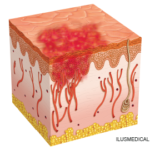The Lupus Foundation of America has videos on its website and posts videos on its social media channels. “Our YouTube channel has about 350 videos covering a wide range of topics related to lupus. Last year we posted approximately 50 videos to Instagram that were either created by Lupus Foundation of America staff or by trusted partners,” Ms. French says.
Johns Hopkins Medicine’s Rheum.TV is another information platform created to educate patients who are living with a rheumatic disease. Although available only in English, Rheum.TV includes more 140 videos on a wide range of diseases, including exercise, medication and lifestyle tips. “Our videos have had more than 11 million views,” says Victoria Ruffing, RN, BC-Rheumatology, director of nursing and patient education at the Johns Hopkins Arthritis Center, Baltimore. “They are available through Rheum.TV, YouTube and Facebook,” she says.
Scope of Need
According to Dr. Ursani, there is a significant need for patient education and outreach content. “Although awareness of rheumatic and autoimmune diseases is increasing, there is a significant need to continue to educate the public, healthcare providers and policymakers to help improve outcomes for our patients,” he says.
The materials from the ACR have proved beneficial for providers and their patients.
“Last year, the diseases and treatments patient fact sheets ranked as the second-most sought-after pages on the ACR website, receiving nearly 3 million views. Additionally, month after month, the patient-focused newsletter has an open rate of 33.5%, which exceeds the industry standard, and the patient-focused social media audience and engagement rate increased,” Dr. Ursani says.
Dr. Sattui explains that “being diagnosed with any chronic condition is challenging, but the challenges are even greater when the disease is rare and knowledge and awareness of the condition are limited. Most resources have been developed in the U.S. and Europe, where the majority of research takes place and where the largest patient organizations exist. Providing patients access to information is crucial, and this should be available to all patients independent of their native language.
“Knowledge empowers patients to be more active in their care as they work with their medical team to achieve good outcomes. It also allows patients to educate their family and friends, provide more visibility to these rare diseases and create awareness. This is particularly important for rare diseases such as vasculitis,” Dr. Sattui adds.
For people with lupus, the need for accurate, easy-to-understand health and medical information is particularly acute. “Lupus is a complex illness and people who have it often have the additional challenge of fatigue and brain fog, which can complicate their ability to understand the disease and participate in treatment decisions and disease self-management. This is compounded when people are not comfortable communicating in English,” Ms. French says.


